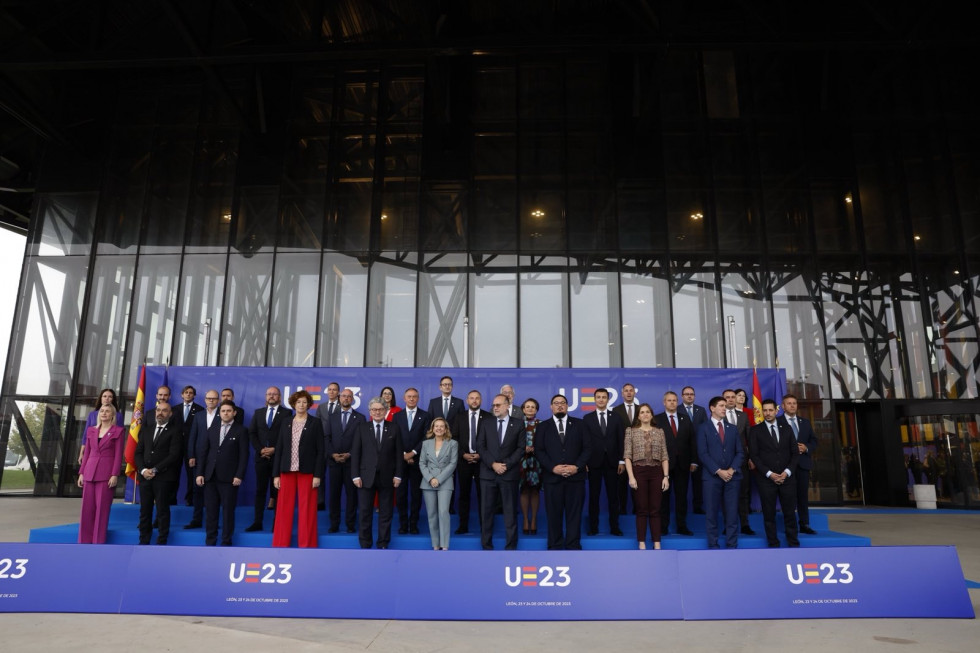Only democratic principles guarantee the EU's development and global competitiveness
The European Union wants to play a leading role in advocating the responsible use of modern technologies and the widest possible sharing of their benefits. We stand at the crossroads of a digital revolution shaped by emerging technologies, and it is important to critically analyse, anticipate and monitor their wider societal impact, while keeping in mind the economic opportunities they present for the Union's competitiveness. The European Union advocates fair and sustainable progress in line with fundamental rights and a common agenda for digitalisation, which is human-centred and based on the principle that rights from the real world should be equally protected and respected online.
In the discussion entitled “Ensuring compliance with digital rights: from principles to action”, Dr Emilija Stojmenova Duh, the Slovenian Minister of Digital Transformation, stressed that digital rights, in particular the rights to privacy, freedom of speech and integrity of thought, take absolute precedence over all other aspects, including the development of technologies and competitiveness in the global marketplace. “If we lose or weaken digital rights, they will not be easily recoverable, and this would be a step closer to authoritarianism. To avoid this, a clear legislative framework is needed that not only prevents such a slip, but also protects and ensures continued democratic development. Europe can maintain its leadership and place in a competitive global market by sticking to democratic rules and by ensuring and promoting technologies that unequivocally respect digital rights. This can also be consistently demanded from companies already present or wishing to operate in the European market. In addition, the European Union must support researchers and institutions in developing technologies that strengthen digital rights, regardless of the size of the EU Member State,” said Minister Stojmenova Duh. She mentioned the example of a consortium of prominent research groups from Slovenia and Croatia, which scored the highest marks for a quantum computing project, but then was not supported because the evaluators judged that partners from such small countries could not guarantee the implementation of the proposed project.
On the future of telecommunications, the Minister stressed the need to modernise and upgrade the regulatory framework for electronic communications. This year marks 25 years since the end of the liberalisation of the telecoms market in Europe, which has enabled the digitalisation of European industry and society. “This anniversary reminds us that the ultimate goal of liberalisation is a diverse, high-quality and affordable range of services for users – and this remains our guiding principle,” said Minister Stojmenova Duh.
She said it was crucial that Member States were involved in the preparation of the European Commission's proposals in a timely manner. “We also propose simultaneous environmental impact assessments and cooperation with organisations such as the International Telecommunication Union, as this will give us a solid basis for decision-making,” said Stojmenova Duh.
The Spanish Presidency of the Council of the EU recommends that Member States, when considering modern technologies, pay particular attention to neurotechnology, virtual worlds and quantum technology, which are among the most promising technologies of our time, with enormous potential for human benefit, but which also entail certain risks, particularly in the collection and processing of data.
At the end of the meeting, the ministers endorsed a declaration on the development of neurotechnologies in Europe, which should be human-centred and based on human rights.


